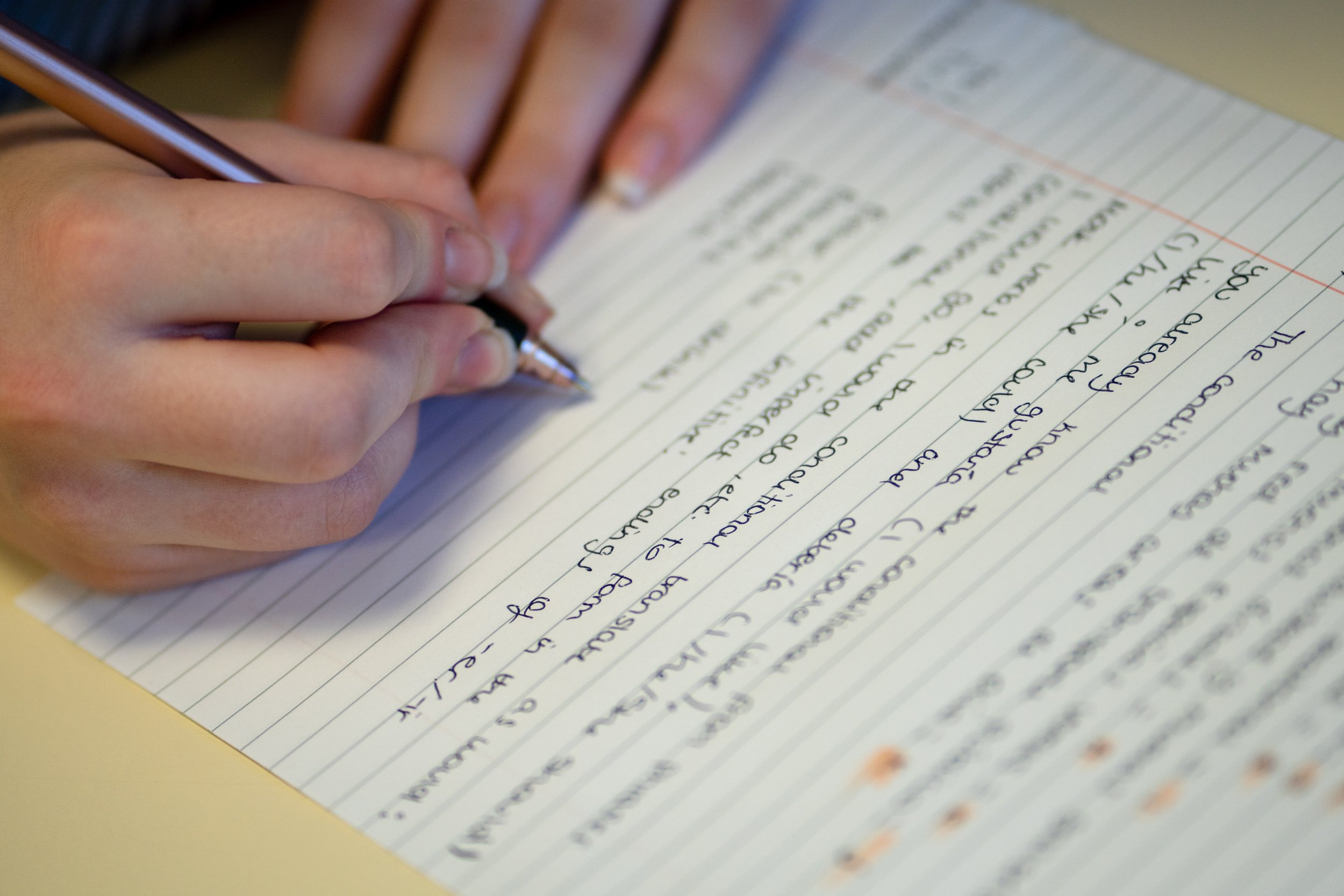
MODERN FOREIGN LANGUAGES
Overview Of The Subject
The principal aim of teaching a modern foreign language is to support students in making substantial progress in a new language through a rich and engaging learning experience. Our curriculum nurtures curiosity and deepens understanding of the world through language acquisition. By communicating and interacting in another language, students are introduced to the countries, communities, and cultures where these languages are spoken. Students not only develop a passion for language learning but also gain insights into the culture and traditions of those countries, enriching their cultural awareness and appreciation of diversity. This prepares them for further academic study and life in a multicultural world.
Our Objectives Include Enabling Pupils to:
Comprehend and respond to spoken and written language from a broad range of (ultimately authentic) sources via listening, reading, speaking, and writing tasks.
Speak with increasing confidence, fluency, and spontaneity and expressing themselves effectively in discussions and enquiries, while continually improving pronunciation and accuracy.
Write for various purposes and audiences, using different levels of formality and a range of grammatical structures to improve accuracy and stylistic control.
Discover and appreciate a variety of texts written in the target language.
French and Spanish are offered through to GCSE level.
In Year 7, students study both French and Spanish, each for half the academic year, before selecting their core language to continue from Year 8 onwards. This selected language will be their GCSE option for MFL.
Students who speak a home language may also be entered for a GCSE qualification in that language (if available), typically in Year 10 or Year 11. Please note that tuition is not provided by the school for home languages. This opportunity reflects the school’s commitment to valuing linguistic diversity and promoting multilingualism in our community.
Aims Of The Curriculum/Curriculum Intent - KS3
The KS3 MFL curriculum aims to:
Cultivate an enjoyment of languages as a lifelong skill.
Promote a clear understanding of linguistic structures and grammar.
Foster intercultural awareness and appreciation through language learning.
By the end of Year 9, pupils should be confident in using their chosen language (French or Spanish), able to hold conversations, and have a solid grasp of key grammar structures such as gender agreement, verb conjugation (past, present, and future tenses) sentence structure and pronunciation rules
All lessons integrate the four key language skills (listening, speaking, reading, and writing) while developing grammatical and metalinguistic awareness.
The curriculum provides a strong foundation for further study, while also equipping students with practical communication skills, to continue in KS4.
Curriculum Content - KS3
Year 7
Students take a baseline assessment to determine their starting point and are grouped accordingly, with groupings reviewed termly.
Content includes Alphabet, pronunciation, and basic phonics, introducing themselves, age and birthday, describing people, saying family members, school and subjects, food, free time activities
The same content is covered in both French and Spanish, so that students can express themselves confidently in both languages by the end of the year.
Year 8
Students continue with their chosen language (French or Spanish). Vocabulary and grammar knowledge is extended, and students begin applying multiple tenses.
Course includes describing houses, neighbourhood, sports and hobbies, daily routines and personal interests
Students begin to embed the use of past, present, and future tenses, and deepen their understanding of sentence structure and grammatical patterns.
Year 9
Pupils continue to develop fluency in their chosen language, exploring more mature and socially relevant topics such as social life and relationships, work and careers, healthy lifestyle and holidays
Emphasis is placed on fluency, complex sentence construction, and opinion expression. Students are also encouraged to use a wider range of tenses and language for real life scenarios.
Independent revision is supported through Quizlet, Duolingo, Google Classroom, vocabulary booklets.
Modern Foreign Languages GCSE - KS4
Students follow the Edexcel GCSE specification. A new GCSE exam specification will come into effect for first assessment in Summer 2026. Our current Year 10 cohort is being fully prepared in line with the new content and assessment requirements to ensure a smooth transition and successful outcomes under the updated framework.
Aims Of The Curriculum/Curriculum Intent - KS4
The KS4 curriculum is designed to:
Equip students with language skills applicable in practical, real-world contexts.
Strengthen grammatical accuracy and linguistic creativity.
Prepare students to express opinions, narrate experiences, and communicate effectively in spoken and written forms.
Pupils also draw comparisons between French, Spanish, and English, boosting critical thinking and awareness of language structure.
Students are prepared and assessed in all four key skills; listening, speaking, reading and writing.
There are six themes Covered at KS4:
My personal world
Lifestyle and wellbeing
My neighbourhood
Media and technology
Studying and my future
Travel and tourism
Curriculum Content KS4
Year 10
Students are placed in mixed-ability groups for their chosen language and begin formal GCSE preparation.
Key focuses; grammatical consolidation (especially tenses and complex structures), expressing opinions clearly in both written and spoken form. Preparing for exam-style questions
Four themes covered in Year 10:
My personal world
Media and technology
Studying and my future
Travel and tourism
Mock exams are used to familiarise students with the GCSE format and identify areas for development.
Year 11
Pupils study their final GCSE themes:
My neighbourhood
Lifestyle and wellbeing
The final term is dedicated to revision and exam preparation, addressing misconceptions, practising exam strategies and vocabulary consolidation. Students revisit all six themes and work on areas where mock results showed room for improvement.
As in KS3, students have access to GCSE speaking and vocabulary booklets, as well as digital platforms such as Quizlet, Duolingo, and Google Classroom. In addition, KS4 students receive extra support through access to a GCSE online textbook, which offers a wide range of practice activities aligned with the exam specification.
Additional Support and Enrichment
Intervention Sessions. Weekly on Tuesdays after school
A Homework Club. Every Thursday an MFL teacher is available to offer support with language homework, revision, or general questions. This provides an additional opportunity for students to consolidate their learning and receive help outside of lesson time.
Peer Support
Year 10 volunteers and Year 11 MFL prefects provide peer support to KS3 pupils during break and lunchtime. They assist with vocabulary practice, speaking activities, and general homework support, helping younger students build confidence in their language learning.
Our MFL curriculum offers a well-balanced, inclusive, and engaging programme that enables pupils to become confident language learners. It supports academic success while also celebrating the linguistic and cultural diversity of our school community.
